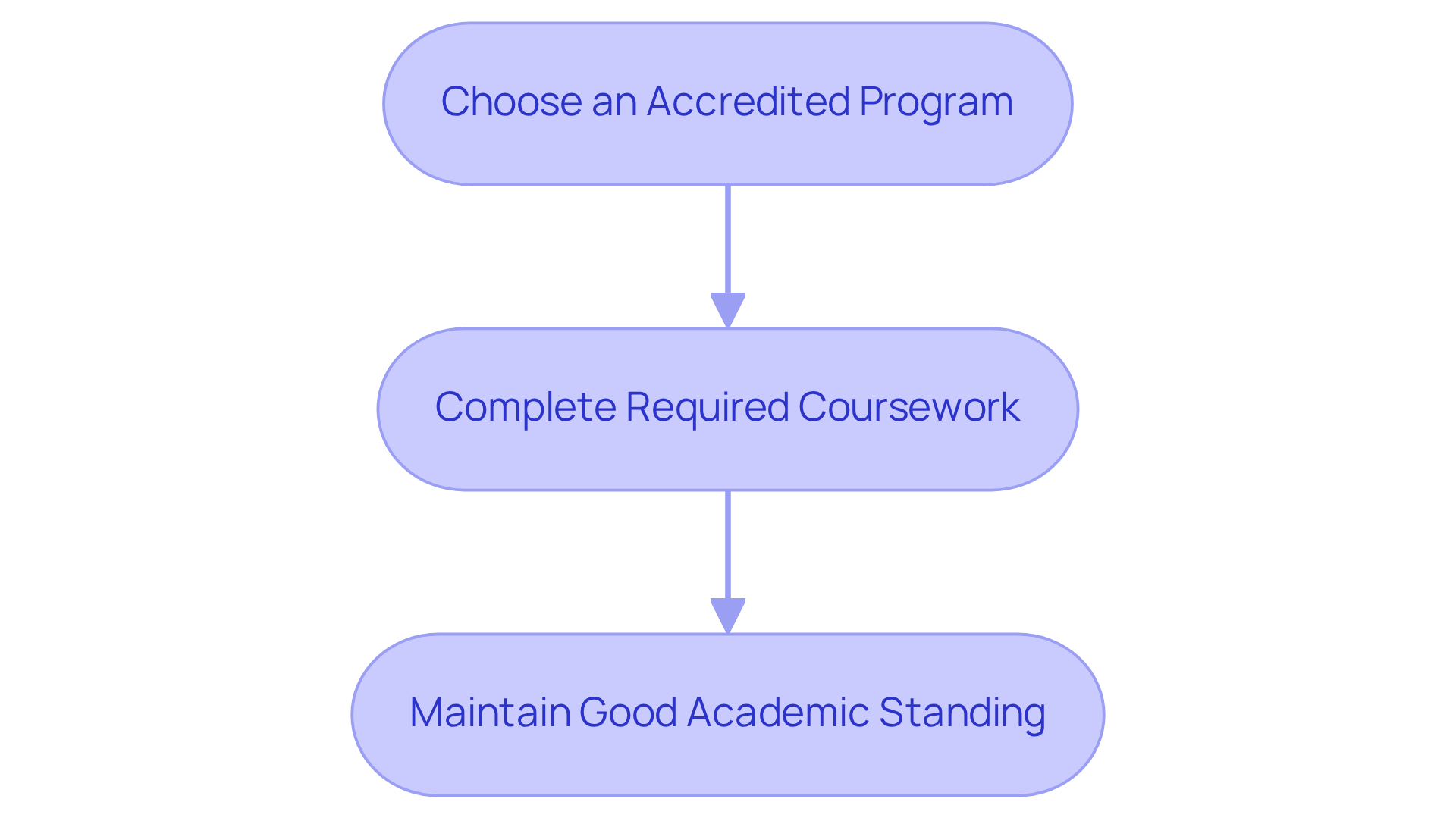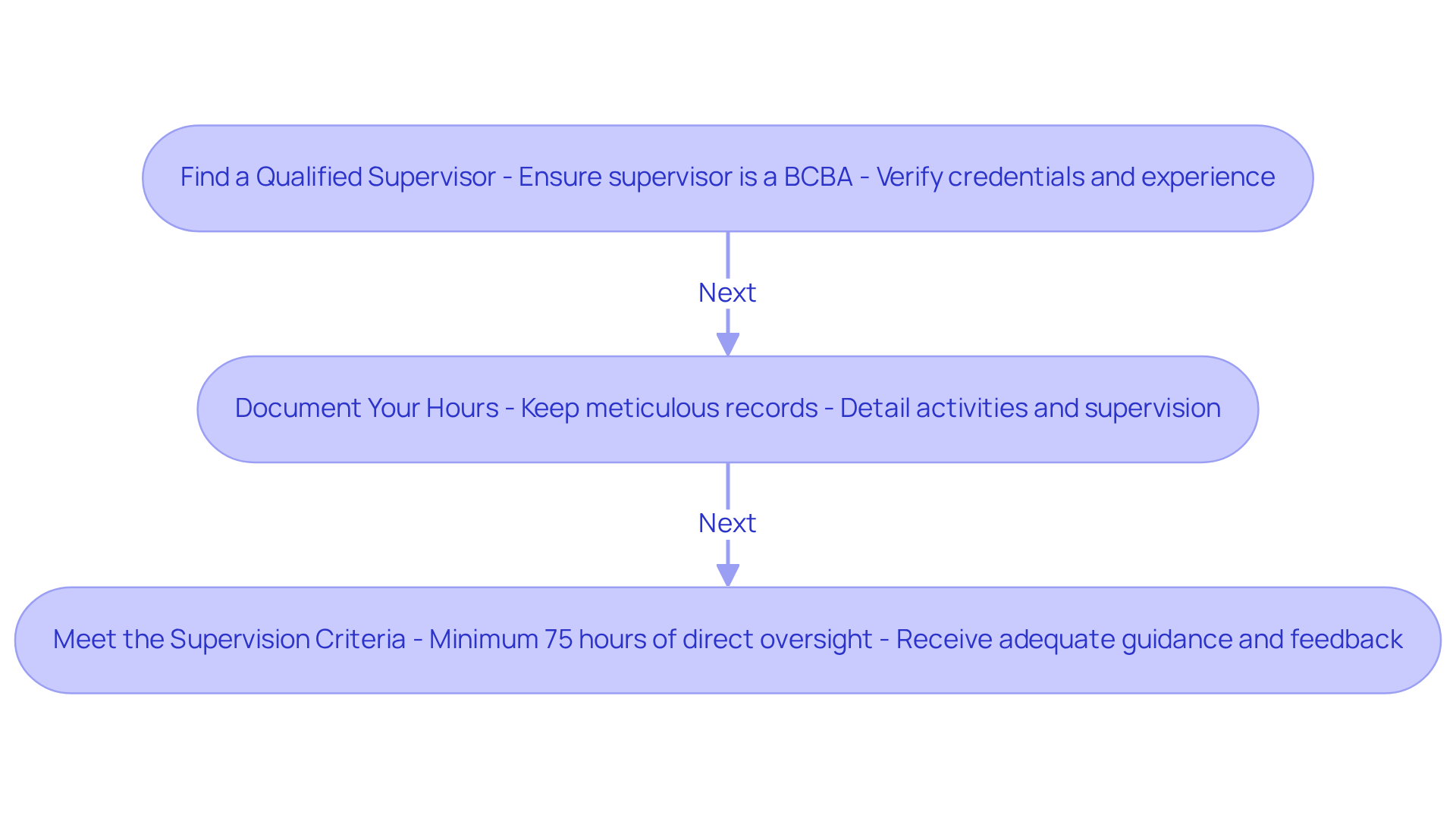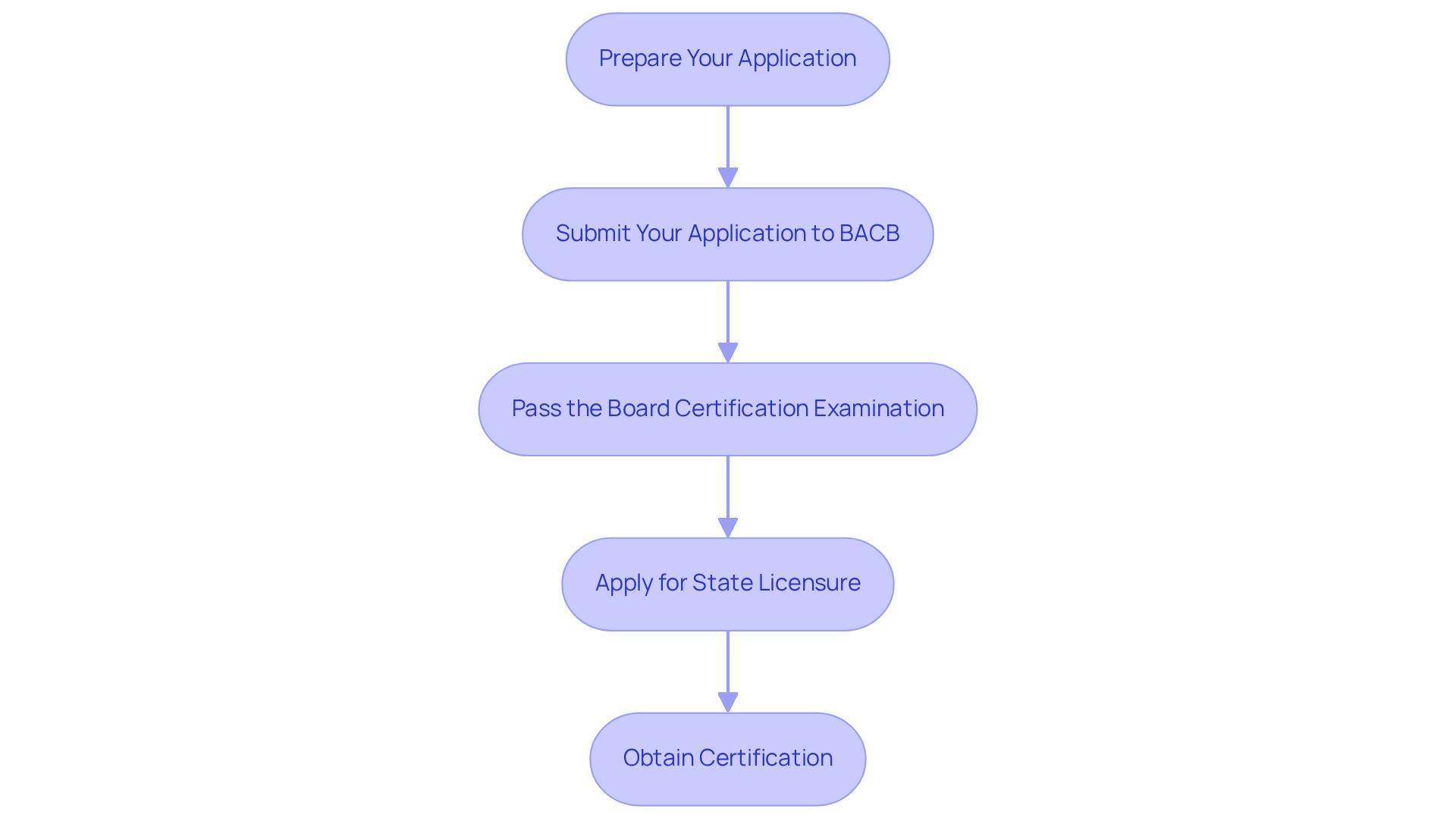July 7, 2025

To achieve BCBA certification in Texas, candidates must successfully complete a master's degree in a relevant field, fulfill supervised fieldwork requirements, and pass the board certification examination. With the increasing demand for Board Certified Behavior Analysts, it is crucial to:
This preparation is essential for ensuring a successful outcome in a growing job market. Are you ready to take the next step in your career? Consider how Hire ABA can assist you in navigating these requirements effectively.
The demand for Board Certified Behavior Analysts (BCBAs) is surging, with projections indicating a 25% increase in job opportunities by 2026. This burgeoning field not only promises a fulfilling career but also necessitates a clear roadmap to navigate the certification process in Texas.
For aspiring BCBAs, understanding the essential steps—from meeting educational qualifications to fulfilling practical experience requirements—can be daunting. How can candidates effectively position themselves for success in this competitive landscape and ensure they meet all necessary criteria for certification and licensure?
As the landscape evolves, it is crucial for candidates to leverage resources that can guide them through this journey.
The demand for Board Certified Behavior Analysts (BCBAs) is projected to rise by 25% by 2026, making now the perfect time to pursue this rewarding career. To obtain BCBA certification in Texas, candidates must complete a master's degree in behavior analysis, psychology, or a related field, ensuring that the program includes specific coursework essential for mastering the principles and practices of behavior analysis. Here are the essential steps to meet the educational qualifications:
By meeting these educational criteria, you will be well-prepared for the following steps in the qualification process, placing yourself for success in the expanding domain of Applied Behavior Analysis in Texas, which includes obtaining your BCBA certification Texas. Understanding the distinction between in the certification application process is crucial, as it allows candidates to choose the pathway that best aligns with their educational background. Remember, selecting an accredited program is not just a requirement; it is a critical step that ensures you receive quality education and training, setting the foundation for your future success in the field.

After achieving your educational credentials, the next critical step is to meet the supervised practical experience requirements. In Texas, candidates must complete a minimum of 1,500 hours of supervised practical experience to obtain their BCBA certification Texas. This essential component not only enhances your skills but also prepares you for a . Here’s how to navigate this process effectively:
By fulfilling these practical experience requirements, you will acquire the necessary skills to thrive as a behavior analyst and qualify for BCBA certification Texas.

To achieve BCBA certification and state licensure in Texas, it is essential to follow these critical steps:
First, consider the growing demand for Board Certified Behavior Analysts (BCBAs), projected to increase by 25% by 2026. This statistic highlights the value of obtaining certification in a competitive job market.
By diligently following these steps, you will successfully obtain BCBA certification in Texas and state licensure, enabling you to practice as a Board Certified Behavior Analyst. The entire process typically takes between 1 to 2 years, depending on the completion of educational and fieldwork requirements. Additionally, with an average salary of $75,784 per year, obtaining certification is a valuable investment in your career.

Achieving BCBA certification in Texas is a structured process that requires careful planning and dedication. The demand for Board Certified Behavior Analysts is on the rise; thus, candidates must follow the outlined steps:
This is an opportune time to embark on a rewarding career path in this growing field.
Key insights emphasize the importance of:
Each of these elements is crucial in preparing candidates not only for certification but also for a thriving career in behavior analysis. Moreover, understanding the application process and the requirements for state licensure is essential for navigating this journey effectively.
In conclusion, pursuing BCBA certification in Texas transcends merely meeting requirements; it embodies a commitment to a professional journey that can significantly impact individuals and communities. With the right preparation and determination, aspiring behavior analysts can achieve their certification and make meaningful contributions to the field. Are you ready to take the first step today? Invest in your future as a Board Certified Behavior Analyst, where the rewards are as profound as the challenges are fulfilling.
What is the projected demand for Board Certified Behavior Analysts (BCBAs) in the coming years?
The demand for BCBAs is projected to rise by 25% by 2026.
What educational qualifications are required to obtain BCBA certification in Texas?
Candidates must complete a master's degree in behavior analysis, psychology, or a related field, including specific coursework essential for mastering behavior analysis principles.
How can I ensure my graduate program is suitable for BCBA certification?
Choose a graduate program accredited by the Behavior Analyst Certification Board (BACB). Programs at the University of North Texas and Texas A&M University are recognized for offering the necessary coursework and training.
What specific coursework should be included in my graduate program?
The program should encompass courses in ethics, research methods, and applied behavior analysis to develop a comprehensive understanding of behavior analysis principles.
Why is maintaining good academic standing important for BCBA certification?
Striving for a strong GPA is important because academic performance can impact future applications for credentials and licensure.
What are the next steps after meeting the educational qualifications for BCBA certification?
After meeting the educational criteria, candidates should prepare for the certification application process, which includes understanding the distinction between Pathway 1 and Pathway 2 to choose the best option based on their educational background.
Our expert recruitment strategies and AI-driven sourcing ensure that you receive top-notch candidates quickly, without compromising on quality. Whether you’re looking for BCBAs, Clinical Directors, or RBTs, we’ve got you covered.